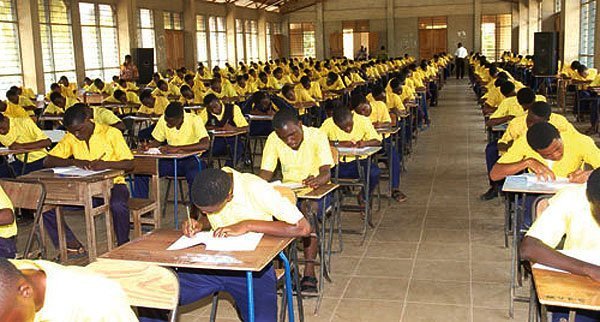Ranking Member on the Education Select Committee of Parliament Peter Notsu Kotoe has pointed out that candidates’ over-reliance on examination leakages, popularly known as ‘Apor’ is what has accounted for the lacklustre performance of students that sat for this year’s West Africa Senior School Certificate Examination (WASSCE).
In an interview on the Reporters’ Visit on A1 Radio, Mr. Kotoe who is also a Member of Parliament for Akatsi North Constituency in the Volta Region, indicated that the students’ optimism of getting the ambience to indulge in examination malpractices left them ill- prepared towards the examination, thereby contributing significantly to their dismal performance.
He said the fact that some candidates have had their results withheld, with others having their papers cancelled is a testament to the fact that the students leaned on getting help from invigilators and supervisors instead of learning hard towards the exam.
“We identified a number of factors; that is the over-reliance of candidates or students on external support. Instead of them to read or learn towards the examination, they were expecting what we call ‘apor’, the leakages to come their way or supervisors and invigilators to assist them to engage in examination malpractices and that did not help them much. That’s why you have a large number of papers being withheld or some cancelled,” said Mr. Kotoe.
The Education Think Tank, African Education Watch’s (EDUWATCH) Ghana Monitoring Report of the WASSCE results, launched on Thursday, December 9, 2021, out of 20 papers monitored, 11 (55 percent) leaked while 45 percent were recorded as fake.
Reacting to EDUWATCH’s report, Mr. Kotoe wholeheartedly agreed with it and thus urged authorities to take pragmatic measures to ensure the Bank of examination malpractice does not continue to rear its ugly head.
He explained that the issue of examination malpractice soils the credibility of candidates’ certificates hence the need for the West African Examinations Council (WAEC) and other stakeholders to put mechanisms in place to stem its tide.
Touching on the minority’s position on the much talked about E-Levy, Mr. Kotoe reiterated that the minority remains totally opposed to the policy.
Source/www.a1radioonline.com/101.1mHz/Elijah Beyeni Yenibey/Ghana



